The workshop was attended by Dr. Tran Chi Thanh, Director of the Vietnam Atomic Energy Institute; Dr. Le Van Hong, former Deputy Director of the Vietnam Atomic Energy Institute; Dr. Hoang Anh Tuan, former Director of the Department of Atomic Energy ( Ministry of Science and Technology ); Associate Professor, Dr. Nguyen Van Thai, Deputy Director of the Institute of Technical Physics, Hanoi University of Science and Technology; and leading experts of the Vietnam Atomic Energy Institute.
 Nuclear Power Workshop - New Aspiration Vietnam National Energy Industry Group
Nuclear Power Workshop - New Aspiration Vietnam National Energy Industry Group
On the Petrovietnam side, there were Chairman of the Board of Directors of Petrovietnam Le Manh Hung; General Director of Petrovietnam Le Ngoc Son; Permanent Deputy Secretary of the Petrovietnam Party Committee Tran Quang Dung; members of the Standing Committee, Board of Members, Board of Directors; and representatives of the leaders of the specialized departments and units in the Group.
Nuclear power - the key to achieving Net Zero
At the workshop, experts agreed that nuclear power is the optimal solution in the context of climate change and energy crisis. This energy will become important and grow strongly in the coming time, playing a major role in ensuring energy security. Nuclear power currently has the lowest emissions among renewable energy types, creating a large, stable power source, suitable for the current context, especially towards the Net Zero target.
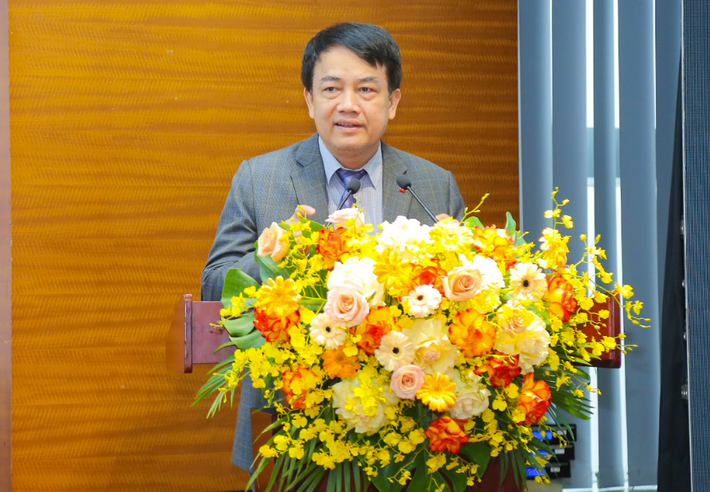 Dr. Tran Chi Thanh, Director of the Vietnam Atomic Energy Institute, proposed amending the Law on Atomic Energy to perfect the nuclear regulatory system.
Dr. Tran Chi Thanh, Director of the Vietnam Atomic Energy Institute, proposed amending the Law on Atomic Energy to perfect the nuclear regulatory system.
From the experience of other countries, Dr. Tran Chi Thanh emphasized the three pillars of nuclear power, including: Power plants; nuclear regulations and nuclear safety, along with research and development work. In Vietnam, in July 1955, President Ho Chi Minh visited the Obninsk nuclear power plant (Soviet Union), paving the way for our country's nuclear power research. After that, Vietnam had a nuclear power development program decades ago and actively implemented it from 1996 to 2016, with results that are still valuable.
“Currently, Vietnam is making efforts to implement nuclear power projects in Ninh Thuan, has planned locations, built a legal system, and trained nuclear human resources. We need to urgently continue the results prepared before 2016 because developing nuclear power takes a long time. In particular, human resources are an important factor for success and the work of completing the infrastructure, especially the nuclear legal system through amending the Law on Atomic Energy is a necessary task,” the Director of the Vietnam Atomic Energy Institute recommended.
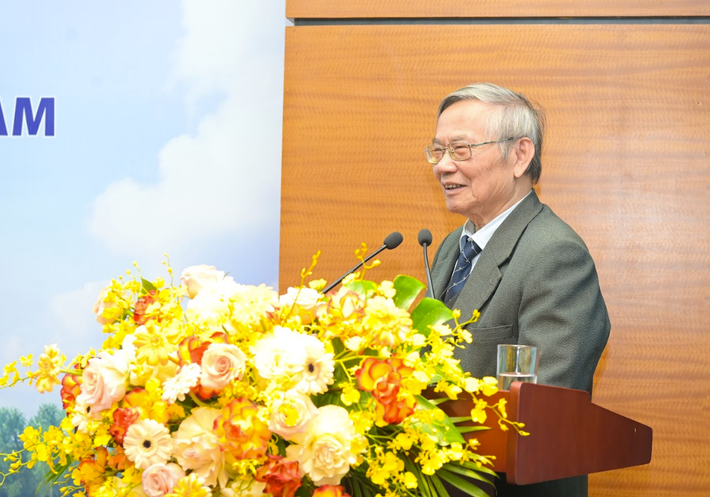 Dr. Le Van Hong, Former Deputy Director of Vietnam Atomic Energy Institute, spoke at the workshop.
Dr. Le Van Hong, Former Deputy Director of Vietnam Atomic Energy Institute, spoke at the workshop.
Elaborating on the current generations of nuclear power technology, Dr. Le Van Hong said that nuclear power technology is currently developing at the highest generation. Comparing the schematic diagram of the nuclear power plant, Dr. Le Van Hong commented that there are some similarities with the thermal power plants that Petrovietnam has built. This is an advantage for the Group if it is assigned as the project investor.
Another important content on nuclear power development that the Workshop focused on clarifying was the infrastructure and legal framework for building plants. According to Master Nguyen An Trung, Acting Head of the International Cooperation Department, Vietnam Atomic Energy Institute, the process of building nuclear power plants must comply with Intergovernmental Agreements, Conventions and International Treaties; Laws, Decrees, Decisions of the Prime Minister; Circulars; National Technical Standards.
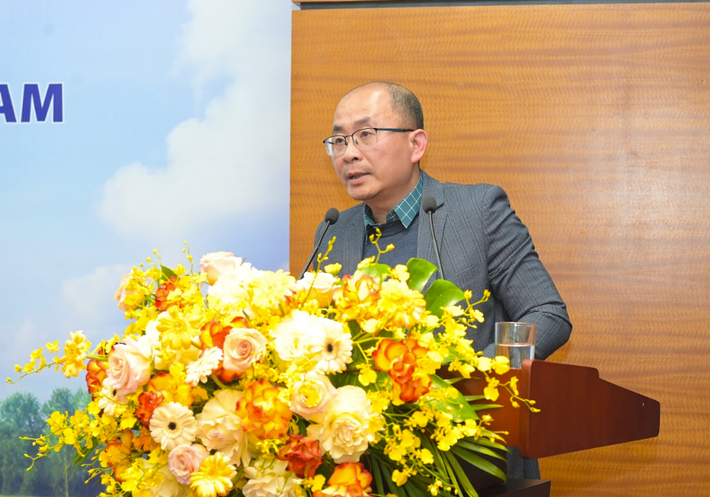 Assoc. Prof. Dr. Nguyen Van Thai, Hanoi University of Science and Technology, speaking at the conference
Assoc. Prof. Dr. Nguyen Van Thai, Hanoi University of Science and Technology, speaking at the conference
Of the five major challenges of nuclear energy (safety, economics, spent fuel, non-proliferation of nuclear weapons, public acceptance), safety is the biggest challenge, including chain reaction control, dissipation heat transfer and radioactive storage. To clarify this content, Associate Professor, Dr. Nguyen Van Thai introduced the nuclear safety standards of the International Atomic Energy Agency (IAEA) when "achieving suitable operating conditions, being able to prevent accidents and minimize the consequences of accidents, helping to protect workers, the public and the environment from the risks of excessive radiation exposure".
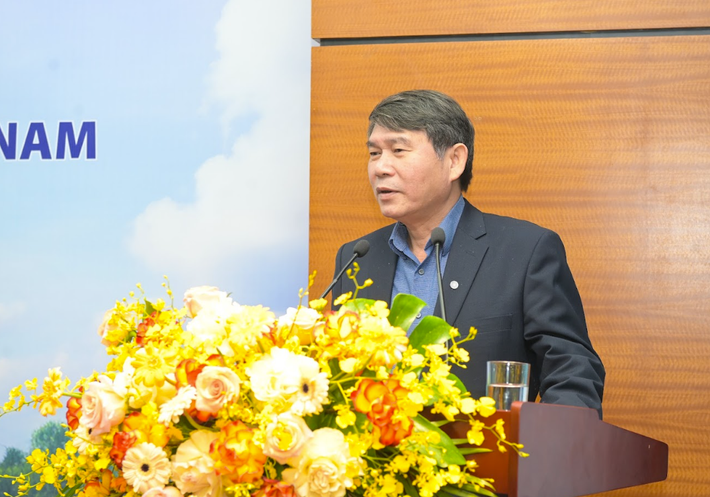 Dr. Hoang Anh Tuan, Former Director of the Department of Atomic Energy, spoke at the workshop.
Dr. Hoang Anh Tuan, Former Director of the Department of Atomic Energy, spoke at the workshop.
Among the major issues in nuclear power construction, economics cannot be ignored. From a study of the average time to build nuclear power plants in the world, Dr. Hoang Anh Tuan said that Vietnam can find ways to save construction time to save costs. According to Mr. Tuan, nuclear power is competitive in cost with other forms of power generation, except in places that have direct access to low-cost fossil fuels. Fuel costs for nuclear plants account for a small proportion of the total cost of power generation, although capital costs are higher than for coal-fired plants and much higher than for gas-fired plants. Notably, the system costs for nuclear power are much lower than for intermittent renewable energy.
"The construction of nuclear power plants is typical of large infrastructure projects in the world, with great costs and challenges. Therefore, it is necessary to consider providing large capital incentives in the long term to ensure a diverse and reliable power supply system," Dr. Hoang Anh Tuan recommended.
Be proactive in preparing and making every effort to be ready for the big task.
At the workshop, the opinions raised for discussion were thoroughly answered and discussed by leading experts in atomic energy and nuclear power.
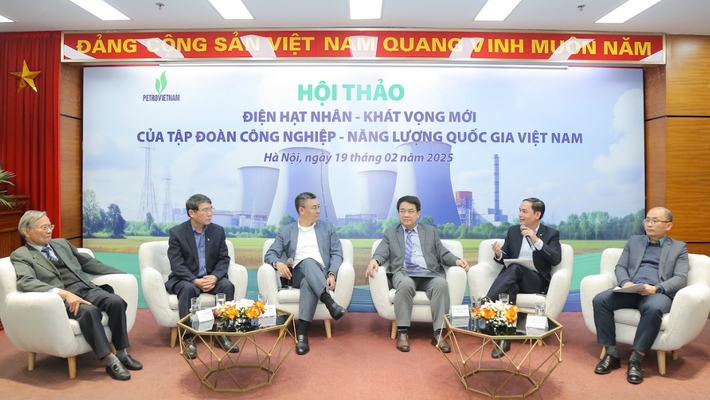 Leading nuclear energy experts at the Workshop
Leading nuclear energy experts at the Workshop
In his closing remarks at the workshop, Chairman of the Board of Directors of Petrovietnam Le Manh Hung reiterated the Group's slogan "Energy for development". Energy is not only in oil and gas, but also in other energy sources of the national industry. With the practical demand for energy for the scenario that by 2030, Vietnam will become an upper middle-income country and by 2045, a high-income country, the issue of energy development, especially baseload power sources, is particularly important. Therefore, the goal set is to have a nuclear power plant as soon as possible and according to the Prime Minister's direction, the Ninh Thuan nuclear power plant must be put into commercial operation by 2030 and by 2031 at the latest.
According to the Chairman of the Board of Directors of Petrovietnam, this is a very stressful target and when there is pressure, there must be special solutions. Therefore, the National Assembly has passed a Resolution on a number of special mechanisms and policies for investment in the construction of the Ninh Thuan nuclear power project. However, to achieve the above target, in addition to these special mechanisms, other corridor mechanisms and policies also need to continue to be completed in parallel, especially specific mechanisms for investors.
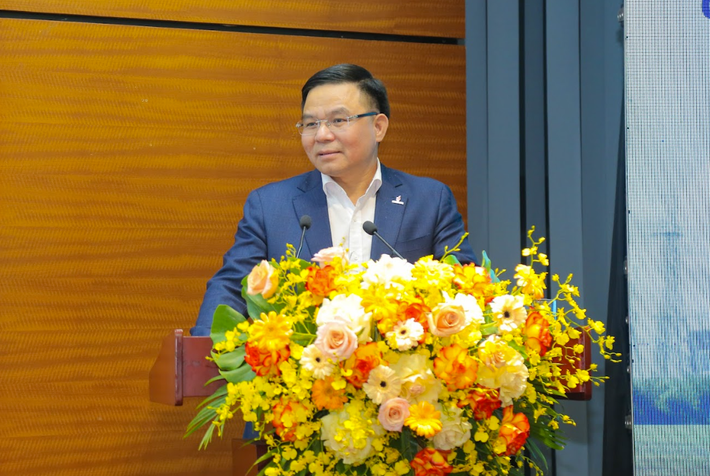 Chairman of the Board of Directors of Petrovietnam Le Manh Hung emphasized that the entire Group has prepared human resources well, to be prepared before being officially assigned by the State to implement the project.
Chairman of the Board of Directors of Petrovietnam Le Manh Hung emphasized that the entire Group has prepared human resources well, to be prepared before being officially assigned by the State to implement the project.
According to Chairman of the Board of Directors of Petrovietnam Le Manh Hung, based on Conclusion No. 76-KL/TW of the Politburo on a number of development orientations of Petrovietnam, including the goal of developing Petrovietnam into a National Industry - Energy Group. Strategically, Petrovietnam is gradually becoming a National Industry - Energy Group, opening up new energy and renewable energy fields.
In response to the country's energy development requirements, the Chairman of the Board of Directors requested that in the coming time, the Group's leaders, engineers and employees of the entire Group need to focus on five main groups of issues: First, continue to research, propose mechanisms and optimize capital costs. Second, coordinate with experts to self-assess and select nuclear power technology before making investment decisions. Third, focus on evaluating and selecting technology associated with safety criteria. Fourth, prepare human resources systematically, consult experts and build a suitable personnel structure in nuclear power plants. Fifth, seek capital mobilization solutions, including loan agreements such as export credits, while building a reasonable financial mechanism and preparing resources to ensure the proposed development strategy. In addition, it is necessary to build a risk management matrix for the development of nuclear power projects, including strategic risks.
"The Group's leaders and employees, especially experts, engineers and technicians, with the goal of Petrovietnam becoming a National Industry - Energy Group, need to strive at the highest level, proactively study diligently, with a high spirit of learning, and manage risks well to successfully carry out political tasks assigned by the Government, ensuring success and safety for the project," emphasized Petrovietnam Chairman of the Board of Directors Le Manh Hung.
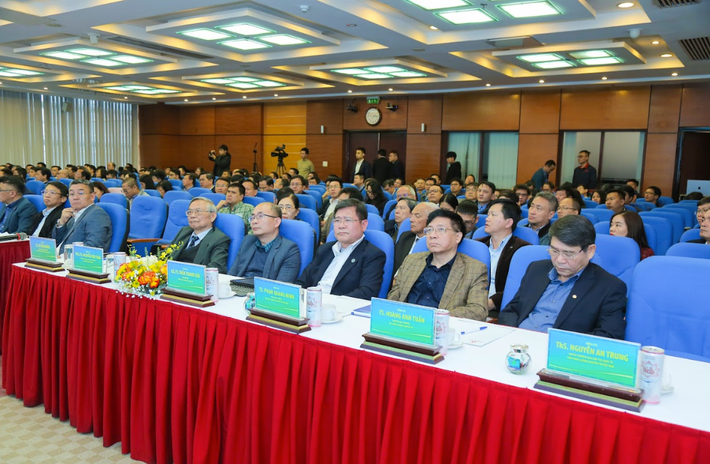 The workshop attracted Petrovietnam officers, engineers and technicians who are passionate about new energy sources.
The workshop attracted Petrovietnam officers, engineers and technicians who are passionate about new energy sources.
The fact that Petrovietnam organized the Workshop right after the National Assembly voted to pass the Resolution on a number of special mechanisms and policies for investment in the construction of the Ninh Thuan nuclear power project clearly demonstrated the initiative and high political responsibility of the collective leadership and oil and gas workers in the face of the difficult and challenging tasks assigned by the Party and State.
Petrovietnam’s initiative and determination are not only demonstrated through the quick organization of the workshop but also through its systematic, scientific and strategic approach. In the context of Vietnam accelerating the energy transition process, the successful implementation of the nuclear power project will mark an important step forward, bringing the country closer to the goal of sustainable development and modernization of the energy sector.
On the morning of February 19, the National Assembly passed a Resolution on a number of special mechanisms and policies for investment in the construction of the Ninh Thuan nuclear power project with high approval. This Resolution sets out many important contents, demonstrating the State's strong commitment to implementing the national key project, in which it identifies the subjects of application including: State agencies, Ninh Thuan province; investors, units assigned to prepare the project; other relevant organizations and individuals.
Notably, regarding mechanisms and policies, the Resolution clearly states: The project is subject to special mechanisms and policies such as simultaneously implementing negotiations with partners who have signed international treaties or with other partners to sign international treaties on construction cooperation, providing credit for project implementation, in parallel with the process of approving adjustments to investment policies and approving investment projects.
Regarding the selection of investors and contractors, the Prime Minister assigned investors to implement the projects; applied the form of designated bidding according to the shortened process for the turnkey package of the main factory construction with the contractor in the international treaty. The order and procedures for designated bidding according to the shortened process are implemented in accordance with the provisions of the law on bidding.
Regarding financial plans and capital arrangements, the Resolution states: Negotiate with the Government and implementing partners to arrange capital for the project according to the project's capital needs and the commitment of the foreign sponsor; be allowed to apply the regulations of the foreign sponsor in cases where Vietnamese law does not have regulations or has regulations but is different from the regulations of the foreign sponsor; the investor is allowed to borrow and is eligible to re-borrow under the method of the re-lending agency not bearing credit risks, not having to carry out procedures for preparing proposals for programs and projects using ODA capital, foreign preferential loans...
During the project implementation, the Prime Minister is authorized to decide to use increased revenue, savings from the central budget and other legal capital sources for the project in case the loan agreement negotiation is unsuccessful or the loan size is insufficient.
Investors are allowed to arrange counterpart capital from loan sources, corporate bond capital, re-borrowed capital from government bonds, project bonds issued by the government, bonds guaranteed by the government with re-borrowing conditions according to the borrowing conditions of the bond issuance, the project's debt repayment capacity and the Law on Public Debt Management...
The Prime Minister approved the policy of increasing the investor's charter capital from the source of revaluation of fully depreciated assets of handed-over BOT power plants and multi-purpose hydropower plants to implement the project with additional capital equivalent to the capital of important national projects.
Competent authorities and authorized re-lending agencies do not have to carry out procedures to assess the re-lending conditions of investors when re-lending ODA capital and foreign preferential loans as prescribed in Clause 3, Article 36 of the Law on Public Debt Management...
Previously, on February 4, at the 2nd meeting of the Steering Committee for the construction of nuclear power plants, Prime Minister Pham Minh Chinh assigned the Ministry of Industry and Trade to report to the competent authority to assign the two major national energy groups, EVN and Petrovietnam, as investors of the Ninh Thuan 1 and 2 Nuclear Power Plant projects.
Source: https://daibieunhandan.vn/petrovietnam-khat-vong-moi-tren-hanh-trinh-phat-trien-dien-hat-nhan-post405079.html


![[Photo] Readers line up to visit the photo exhibition and receive a special publication commemorating the 135th birthday of President Ho Chi Minh at Nhan Dan Newspaper](https://vphoto.vietnam.vn/thumb/1200x675/vietnam/resource/IMAGE/2025/5/17/85b3197fc6bd43e6a9ee4db15101005b)

![[Photo] More than 17,000 candidates participate in the 2025 SPT Competency Assessment Test of Hanoi National University of Education](https://vphoto.vietnam.vn/thumb/1200x675/vietnam/resource/IMAGE/2025/5/17/e538d9a1636c407cbb211b314e6303fd)
![[Photo] Prime Minister Pham Minh Chinh chairs meeting on science and technology development](https://vphoto.vietnam.vn/thumb/1200x675/vietnam/resource/IMAGE/2025/5/17/ae80dd74c384439789b12013c738a045)



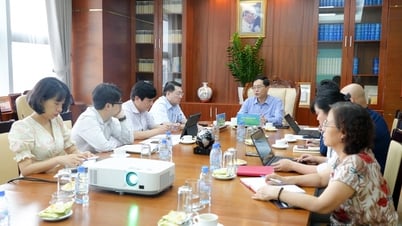
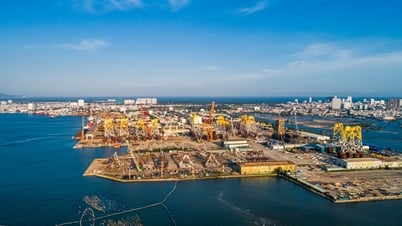
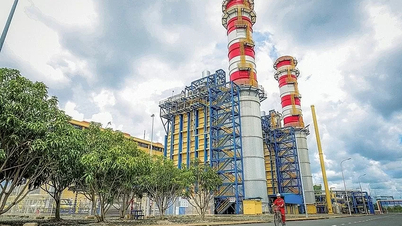

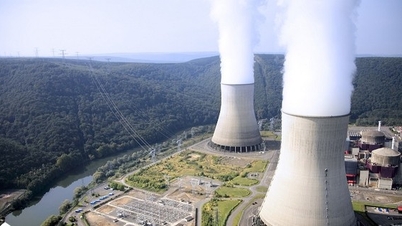

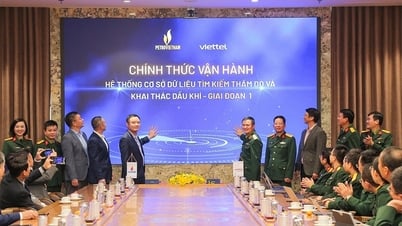

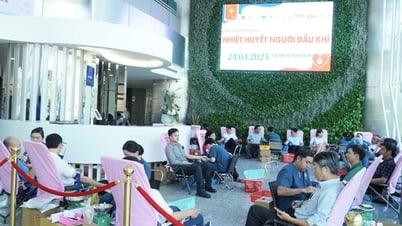




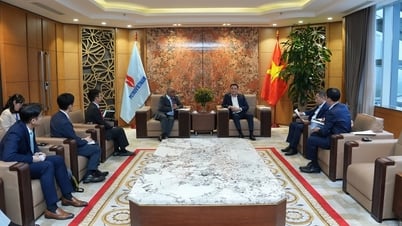










![[Photo] Nearly 3,000 students moved by stories about soldiers](https://vphoto.vietnam.vn/thumb/1200x675/vietnam/resource/IMAGE/2025/5/17/21da57c8241e42438b423eaa37215e0e)






















































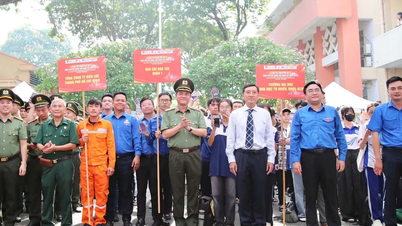

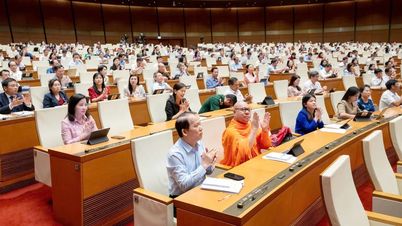












Comment (0)